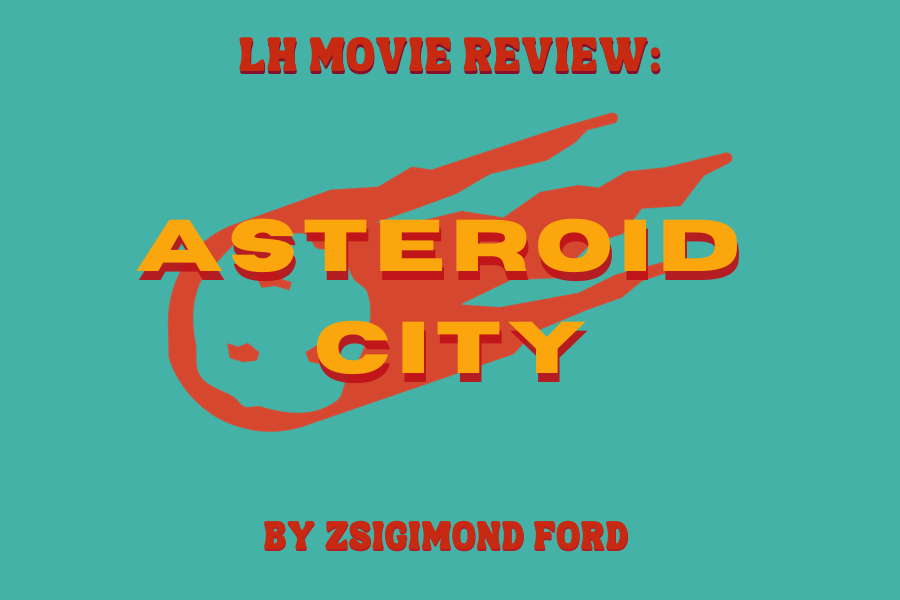Released in the early summer of 2023, director Wes Anderson’s most recent production has been met with rather undeserved mixed reviews. Taking place in a small American town circa 1995, Asteroid City blends Anderson’s beautiful art style and a nihilistic, yet equally beautiful philosophy on not only the medium of acting, but life itself, while maintaining a humorous tone throughout its runtime.
The film begins as a documentary of the fictional play, Asteroid City. Narrated by Bryan Cranston’s character and filmed exclusively without the presence of color, the scenes of the documentary serve to explain many of the questions one may develop when watching the other portion of the film, the play. Filmed in full color, the play portion takes the majority of the film. Within the play is where we find more of a traditional plot. A family of six, who have recently become five, are on their way to a small town for an award ceremony that the oldest son has been invited to attend. On their way, the family’s car breaks down, stranding them in the middle of the desert with an outlandish supporting cast, and a traditional depiction of the American military. The cast slowly grows closer, until the banter is cut short by the unexpected appearance of, well, an alien. Post-alien we see how our cast copes with this new discovery, and more importantly, the military.
In the world of the documentary, we find the actors of the characters in the play, and more importantly, the reasons they have for performing, excluding Jason Schwartzman’s character. Throughout the documentary portion, Schwartzman’s character struggles to find the meaning of the play and his character’s actions, placing his ability to act into question. This slowly leads him to what I believe is Anderson’s philosophy on the art of acting.
The cinematography of the film is, as expected, breath-taking. Anderson’s ability to turn any scene into eye candy never ceases to impress. Watching the background of many of these scenes reveals the level of care Anderson puts into his films, which allows for a very pleasant rewatching experience. The props of the film are equally fitting in the scene of a small American town, while maintaining the level of absurdist humor that Anderson is known for. My only major critique of the cinematography and practically the entire film is its use of special effects. Although the film does not make use of these effects often, when it does, it’s in harsh contrast of visual style to the rest of the scenery, creating a very off-putting watching experience any time they are used.
The film certainly is not without its flaws, its vague and often confusing connotations and sudden pace changes can be rather overwhelming. Yet, its beautiful art direction and flawless comedy more than suffice for the hindrance. Allowing for a pleasant watch for a less invested audience, while creating a much deeper viewing experience for those willing to search for it. Asteroid City is certainly a film undeserving of its reviews.


































